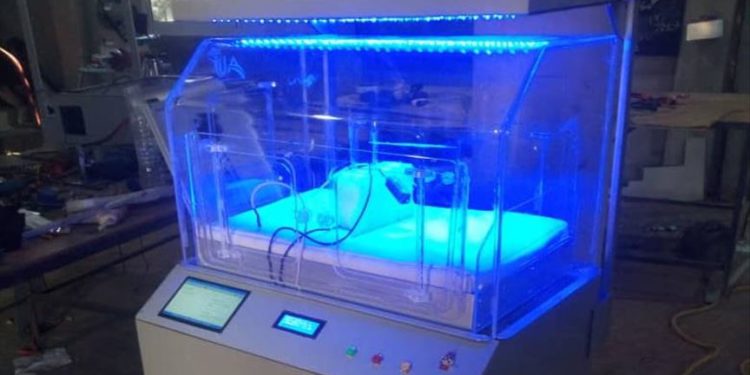The World Health Organization (WHO) has reported that the bubble continuous positive airway pressure systems (CPAPs) designed and made in Kenya were being used in at least 25 locations across Ukraine, 17 of which are prenatal centres.
Numerous hospitals and clinics have been bombed during Russia’s assault on Ukraine, leading to regular power failures with the potential to shut off life-saving machinery. The respiratory device made in Kenya that operates without electricity is being used by medical personnel organisations to save vulnerable newborns.
A pediatric nurse at the Jaramogi Oginga Odinga said, “the device helped us a lot because before we had the machine there were babies who needed the CPAP, but we were not able to initiate it. We were just using normal oxygen, but currently, we have seen that there are babies who improve very well when we initiate CPAP.”
The machine continually administers pressurised oxygen, facilitating breathing for infants experiencing respiratory distress. According to employees, water bubbles in a jar indicate that the user is breathing properly.
Read: Technology Sector Partners Launch Digital Talent Program
This year, the Vayu Global Health Foundation and Revital Health Care, a producer in Kenya’s Kilifi County, began mass-producing the devices. According to Krupali Shah, Revital’s technical director, the bubble CPAP requires only a pressurised supply of oxygen, such as a cylinder, to function.
Krupali Shah, Revital’s technical director said that “once you have continuous 100% oxygen flowing in the blender, which is where the magic of the entire device is and is, literally, where the magic happens, it’s able to pull ambient air from the outside as well.”
“You can adjust the oxygen concentration between 30-100 before delivery to the baby. The blended air can be filtered, humidified, breathed in by the patient and breathed out. There is also a pressure generator jar which controls the pressure and keeps the baby’s lungs open,” she added.
According to its inventor, American paediatrician Thomas Burke, investing in the health of vulnerable newborns is critical to lowering infant mortality.
“People actually have to commit to budgets, and that means that health institutions have to prioritise newborns. In my two and a half decades of work on maternal health, I have seen that although there is occasionally a lot of rhetoric about saving mothers’ lives, ultimately, people are not willing to put money behind protecting mothers’ lives,” Burke added.
Read: Kenya Healthcare Federation Salutes President Ruto’s Health Reform Commitments
According to officials, the device offers a minimally invasive method of helping neonates who are having difficulty breathing. Doctors claim that oxygen blenders give newborns pure oxygen while preventing lung and brain damage.
According to the World Health Organization, respiratory issues cause about 1 million child deaths each year in low- and middle-income nations. Advocates claim that the world needs more of these life-saving devices.
In Kenya, the CPAP machines cost about US $400 (approx. Ksh48,200). In addition to Belgium and the US, the system is employed in at least 20 African nations.
Email your news TIPS to editor@thesharpdaily.com
















